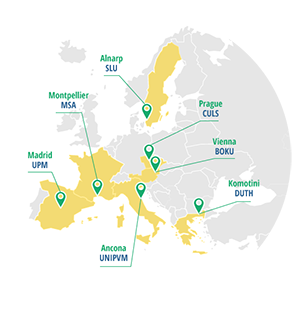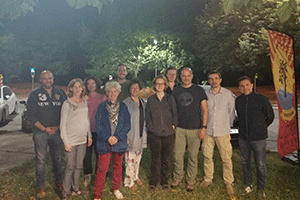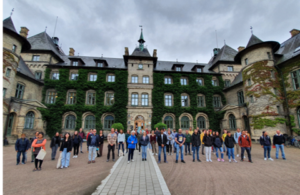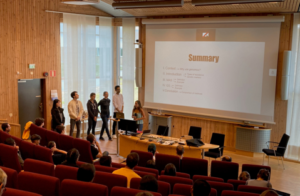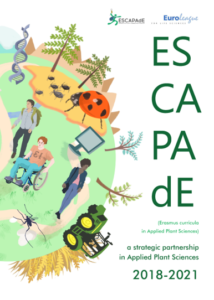Demographic growth and climate change raise a tremendous challenge for the next generation of professionals in Applied Plant Sciences: producing more with less. Seven European universities have decided to join forces to tackle this challenge. That’s how the ESCAPAdE project started.
ESCAPAdE (EraSmus Curricula in Applied PlAnt SciEnces) is a European Erasmus+ project. It has received funding from the Erasmus+ programme of the European Union. The project runs from September 2018 to August 2021.
A group of 23 associated partners is also part of the picture and is helping frame a European collaborative network. So we are gathering expertise and views from both professionals and academics.
Our objectives
– Improvement of the curricula we offer in Plant Sciences for graduate students.
The needs of future employers have been analyzed: Courses content will be modified to take them into account. New teaching methods were shared in the network and tested during one Summer School held in Sweden in 2021. Documentation has been prepared to get a ‘Quality Label’ certification for our curricula in Applied Plant Sciences, including a definition of learning outcomes in Applied Plant Sciences.
– Facilitation of student mobility in Europe.
We promote opportunities for Master’s students in Applied Plant Sciences to study abroad in one of the 7 universities that are part of the ESCAPAdE project. A user-friendly online mobility tool developed during the project provides information on course content in order for students to devise a sound Erasmus stay abroad project, adapted to their professional needs.
– Tasks
Five work-packages have been implemented:
i) map and diffusion of the diversity in Applied Plant Sciences educational programmes within our network;
ii) Identification of professional needs in this domain;
iii) construction of renewed pedagogical methods;
iv) dissemination planning of the project;
v) transversal tasks.
The short and longer-term benefits of the ESCAPAdE project
Implementing this ESCAPAdE Erasmus+ project allowed us to know each other, consolidate the European dimension of our Universities and develop skills and teaching activities relevant to professional and societal needs, thus providing our students with the best opportunities of training in the knowledge-based bio-economy of plants.
Longer term benefits will be to increase the visibility and attractiveness of Applied Plant Sciences curricula and Erasmus trainings, and employability of our students in the sector.

